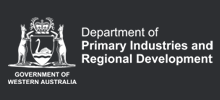Publication Date
3-2019
Publisher
GHD
City
Bunbury
Abstract
In May 2018, the Office of the Auditor General (OAG) published an audit into the management of salinity and recommended that the Department of Primary Industries and Regional Development (DPIRD), in consultation with the Department of Biodiversity, Conservation and Attractions (DBCA) and the Department of Water and Environmental Regulation (DWER), set a strategic direction for salinity management for WA and improve monitoring, cooperation, coordination, promotion of soil conservation, and compliance of salinity impacts and its management.
The OAG’s audit focused on two questions:
- Do agencies know the extent and impact of dryland salinity in the South West agricultural regions?
- Are efforts to reduce the impacts of dryland salinity in the South West regions working?
To respond to these questions, DPIRD commissioned an independent review of state and federal government salinity policies and programs and their effectiveness in addressing salinity. This review included consultation with key agencies on the effectiveness of a range of government programs that had investment in salinity management and research and a workshop that involved more than 35 stakeholder groups, each representing ranging perspectives on salinity extent and management.
The overall conclusion of this review is that salinisation of land and water remains a significant problem. The review found that since 2006, there has been limited investment into the economic and environmental impacts of salinity and that studies of feasible and cost effective management options have not been updated in recent times.
To answer the two questions posed by the OAG, this review finds that:
- Agencies do not know, accurately, the changes in extent and impacts of secondary dryland salinity since the last quantitative measure in 2000.
- There has been successful reduction of the impacts of secondary dryland salinity in discrete areas, but at the gross level, reduction of impacts has been very limited.
In response to these findings, two key actions are recommended:
- Update data on the extent and impacts of dryland salinity.
- Target investment of public and private funds in four key areas: information, governance, innovation and investment.
Number of Pages
64
Keywords
dryland salinity, salinity management, strategic direction, consultative review, south-west Western Australia
Disciplines
Agricultural Science | Agriculture | Natural Resources Management and Policy | Soil Science | Sustainability
Recommended Citation
GHD (2019) A new direction for salinity management in Western Australia: a consultative review, report to Department of Primary Industries and Regional Development, GHD, Bunbury.
Maps
Maps are not included as part of the complete document download. If this report contains a map, it will be available in the individual parts list below.
Included in
Agricultural Science Commons, Agriculture Commons, Natural Resources Management and Policy Commons, Soil Science Commons, Sustainability Commons

